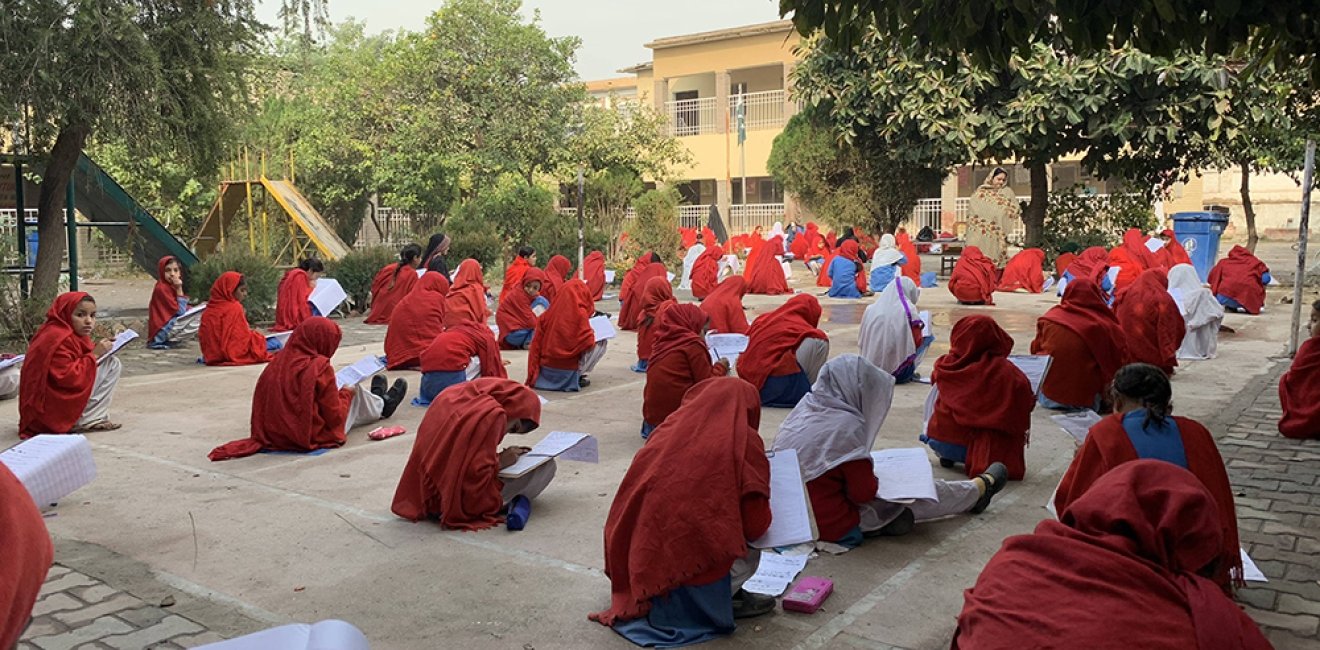
A blog of the Indo-Pacific Program
On Friday, July 12, Nadia Naviwala, a former Public Policy Fellow at the Wilson Center launched her report titled “Why Can’t Pakistani Children Read? The Inside Story On Education Reforms Gone Wrong.”
In her presentation Naviwala highlighted the impending and rather prolonged education crises in Pakistan and the challenge of asking the right questions. She underscored that unlike traditional perceptions, Pakistan’s education budget has rivalled the country’s defense budget with an average increase of 18% per year. Given the rate and amount of investments in the education sector, the crux of the crisis lies in the inability of the students, both in primary and secondary schools to comprehend and fully understand the material they are being taught.
Moreover, her presentation also emphasized that unlike overarching stereotypes about girls’ education in developing countries like Pakistan, surveys have indicated that Pakistanis believe that it is equally important to educate both boys and girls—the gender gap has narrowed over the years and in different scenarios coeducation has favored girls’ education as siblings can accompany each other in order to overcome the problem of distance and access to schools. In this manner, Naviwala showcased that the issue in this sector lies on the supply side of education. She further elaborated on her fieldwork and research by discussing problems in the delivery and teaching methods as well as the severe language mismatch in these primary and secondary schools. She highlighted these issues by underscoring the absence of a proper oral foundation for language in schools across the country, given the abundance of languages spoken in different parts of the country, mostly varying by province. In Pakistan, students are often taught either in English and Urdu—languages which children from areas such as KPK and other provinces are not familiar with or as comfortable with unlike their regional language such as Pushto, Balochi and so on.
Additionally, her presentation also highlighted the commonly practiced teaching method of rote learning; this teaching process indoctrinates a pattern of repetition and memorization. In this manner, education is reduced to mere jargon and children begin to heavily rely on memorization and guesswork rather than comprehension, conceptual tools or phonics.
Naviwala also presented the elitist perception of education in Pakistan, which has infiltrated the education sector and has impeded the growth of students across the country. She underlined how the idea of education in Pakistan is driven by what it is supposed to look like and with the main aim to produce English educated Muslims. In the process of achieving this goal, the path academic institutions opt for is often overlooked or completely ignored, consequently contributing to the education crises in Pakistan. In the efforts to do so, critical thinking among children is made impossible as they are handicapped from comprehending the language that they are being forced to learn and read.
At the end of her presentation, Naviwala argued how the education budget has been consistently directed towards and absorbed by ineffectual methods. Therefore, the report also discusses the importance of the leadership required to direct government and society towards the right, and rather valuable, path to education. The elitist perception about education and the forceful learning of English is rampantly increasing the divide across and within the different provinces of Pakistan. If Pakistan hopes to tap into its youth’s learning potential, Naviwala pointed out that the country’s education sector must be reformed in a manner that cultivates the spirit of conceptual learning and comprehension in languages that students communicate in and understand—otherwise in the pursuit of English, education will be lost.
Image: Nadia Naviwala
Follow the Asia Program on Twitter @AsiaProgram. or join us on Facebook.
The views expressed are the author's alone, and do not represent the views of the U.S. Government or the Wilson Center. Copyright 2019, Asia Program. All rights reserved.
Author

Indo-Pacific Program
The Indo-Pacific Program promotes policy debate and intellectual discussions on US interests in the Asia-Pacific as well as political, economic, security, and social issues relating to the world’s most populous and economically dynamic region. Read more





